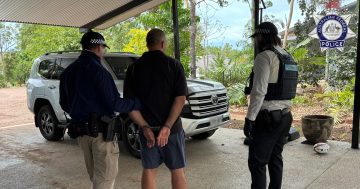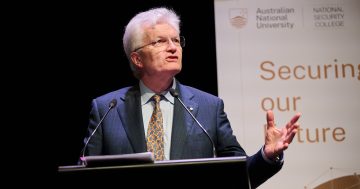 1. This week a decade ago, new research revealed close to 3.3 million Australians aged 18 and over were mobile-only users at the end of 2012, having replaced their fixed-line home phone with a mobile. The Australian Communications and Media Authority (ACMA) said a range of factors could be contributing to the shift, including the increase in consumer access to improved and affordable technology and the fact that mobile networks were being upgraded to support 4G services. Mobile phone plans were also becoming more flexible and affordable and converging technologies and devices allowed users to access multiple communication and media services from a single device.
1. This week a decade ago, new research revealed close to 3.3 million Australians aged 18 and over were mobile-only users at the end of 2012, having replaced their fixed-line home phone with a mobile. The Australian Communications and Media Authority (ACMA) said a range of factors could be contributing to the shift, including the increase in consumer access to improved and affordable technology and the fact that mobile networks were being upgraded to support 4G services. Mobile phone plans were also becoming more flexible and affordable and converging technologies and devices allowed users to access multiple communication and media services from a single device.
“It is not only fixed-line home phones that are being substituted,” the ACMA said. “The number of fixed-line home internet connections being replaced with mobile connections is also growing.”
2. The Australian Customs and Border Protection Service announced it would introduce tougher background checks and performance standards, embedded Federal Police officers and enhanced patrols of the waterfront and airports to meet the increasing challenges of organised crime and corruption. Minister for Home Affairs and Minister for Justice, Jason Clare said service-wide reform was needed if Customs was to keep pace with a rapidly evolving border environment, while meeting Government and community expectations around border management and protection.
“Meeting this challenge will require strong, effective and professional leadership at all levels and a commitment to ongoing staff engagement and effective change management,” Mr Clare said.
3. The $64 million National Anti-Gang Taskforce officially began operations, comprising 71 members from the Australian Federal Police and State police forces, and officers from the Australian Crime Commission, the Australian Customs and Border Protection Service, the Department of Immigration and Citizenship, the Australian Tax Office and Centrelink. It would directly target, investigate and arrest gang members in Australia; provide State and Federal law enforcement Agencies with intelligence on gangs across Australia and overseas; and provide State and Territory police with better access to key Federal Agencies to get the information they needed to make arrests.
Other functions would see the Taskforce investigate the activities of Australian-based gangs overseas and the link to crime back in Australia.
4. A $1.2 million research initiative aimed at minimising heat stress in Australian cities began, led by the University of South Australia (UniSA) Zero Waste Centre for Sustainable Design and Behaviour, examining urban microclimates in Sydney, Melbourne and Adelaide. Project leader, Professor Steffen Lehman said the research would support policy formulation in urban planning and environmental management.
“The heat stress that people experience in cities can be considerable, often much more intense than in less built-up areas,” Professor Lehmann said. “We need to ask what happens in public spaces when older people and young children are not able to go out because of the heat. How do we build cities that mitigate heat stress and the storage of heat?”
5. The need for a renewed approach to reducing lead exposure in the Port Pirie community was highlighted in the latest SA Health quarterly report into the blood lead levels of children in the area. Director of Public Health at SA Health, Dr Kevin Buckett said over the past decade steady progress to deal with this long-term issue had been made, but while community intervention programs had been instrumental in significantly improving children’s blood lead levels, the next step was to reduce the smelter’s lead emissions.
Dr Buckett said to achieve that the Commonwealth and South Australian Governments had reached an in-principle agreement with the operator, Nyrstar, to transform the refinery through a new smelting process using modern technology.
6. And a decade ago, WA’s public sex offender register — the first of its kind in Australia, listing absconded, serious and repeat offenders — had recorded almost 100,000 hits and led to the surrender of 10 offenders since it was launched in October 2012. Minister for Police, Liza Harvey said 10 offenders had surrendered to police once they found out that their names and photographs had been or were about to be placed on the website, meaning the register had already proven an effective tool in reducing the time spent looking for missing offenders and helping to protect the community.
“This high level of traffic and inquiries indicates there is strong public interest in information about absconded, serious and repeat offenders,” Ms Harvey said.











